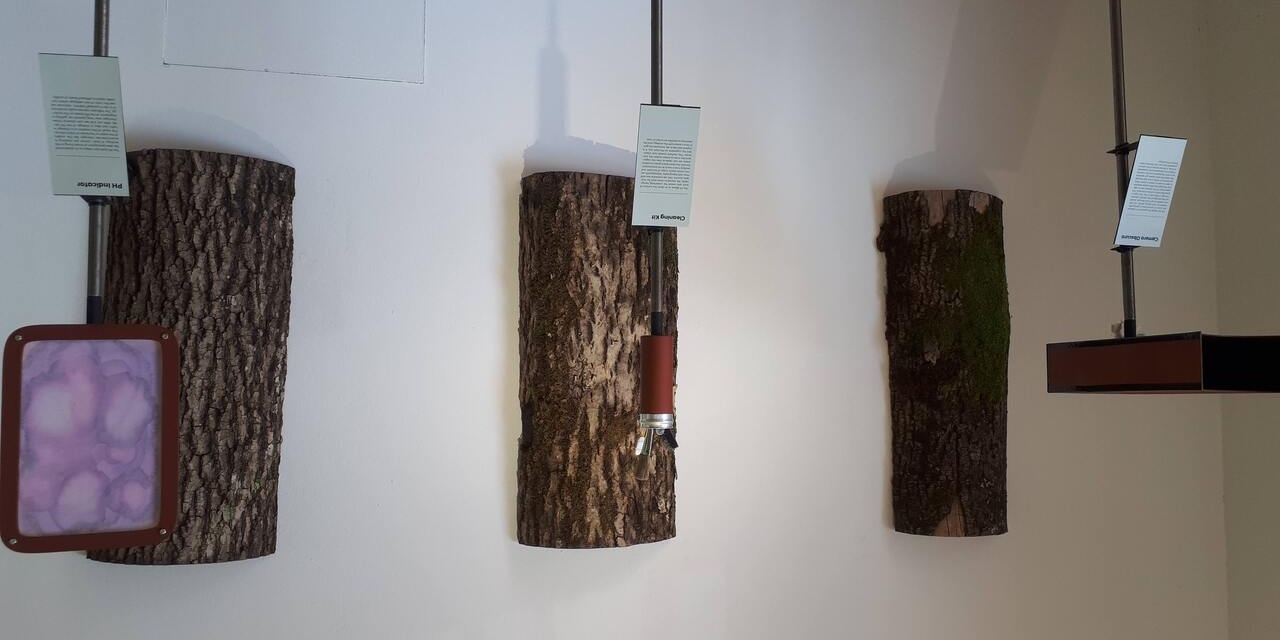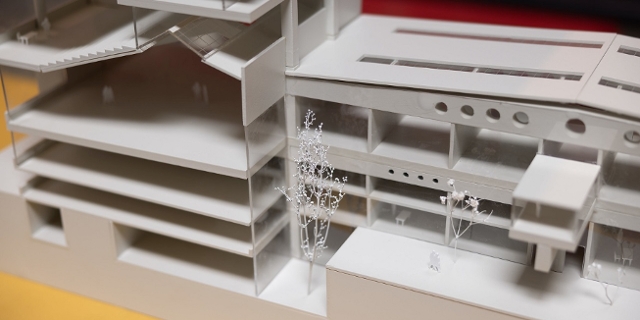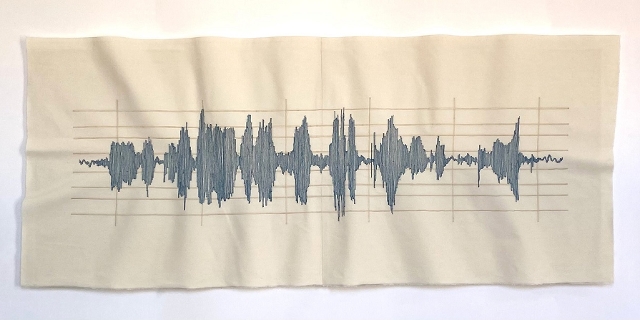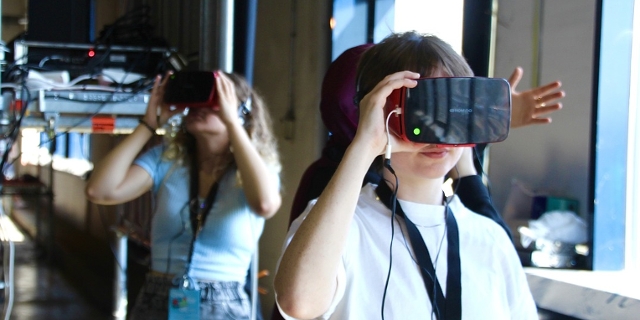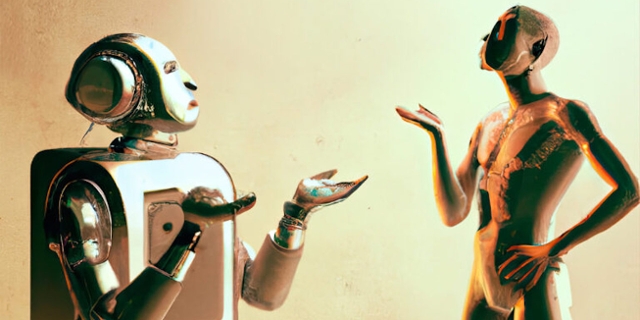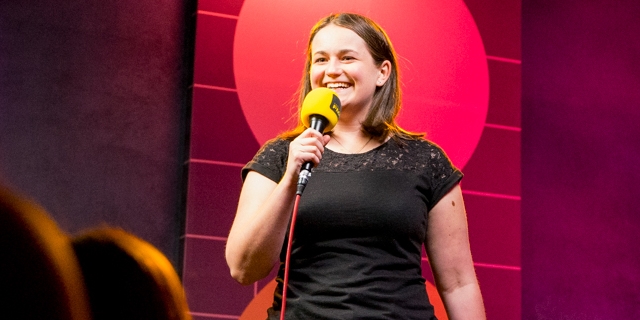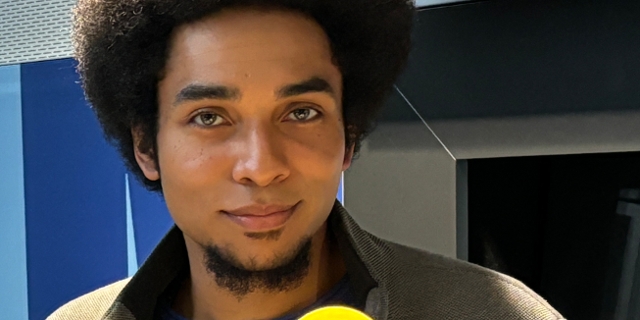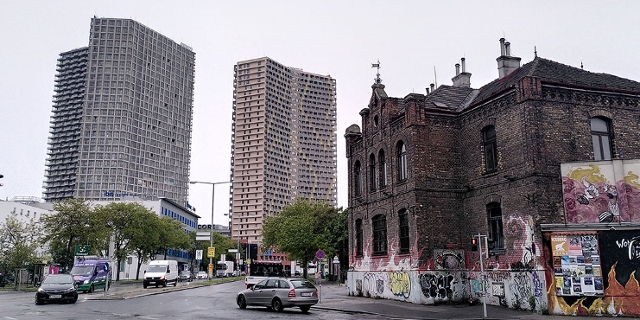Tech futurism is our friend: A stroll through Kunstuni Linz at Ars Electronica
By Johnny Bliss
Today I decided to visit the Interface Cult exhibition, a project of the University of Art and Design Linz. Based at Hauptplatz 8, I chose this gallery because I have the feeling that it epitomizes much of what is at the essence of this festival’s spirit, namely the quest of many artists, futurists and inventors to find ways to use technology to make us all better humans. Many of the installations I found here riff on this theme, whether by using seashells as a medium for utopian science fiction stories (Sonic Utopias) or by metaphorically smashing the tower of Babylon with secret, confessional stories told in many different languages (Ear to Ear).
Happy and not so happy
Not every installation, however, is inherently optimistic or ‚happy‘. For example, Slovenian artist Barbara Jazbec uses 1990s Furby technology to delve into the darkness of her own subconscious, shining a light on her own history of trauma in a way that ends up seeming both cute and terrifying (Eerie Me). Elsewhere, we find the Painfully Human Chatbot, an AI that seems desperate to be liked, and fights its own true desires to meet deadlines and fulfill social obligations.
By far my favourite place to hang out in this festival area is in fact a bed, specifically a bed where visitors are invited to lie down and reflect on their lives as if they are visiting a garden. Which, in a way, they are! The exhibition, Private Garden by the artist Qian Xu, projects a constantly-changing virtual garden onto a bed. How one behaves on the bed influences how the garden looks and sounds (yes, there’s an auditory component as well), and it is a very easy place to while away many hours of one’s festival experience.
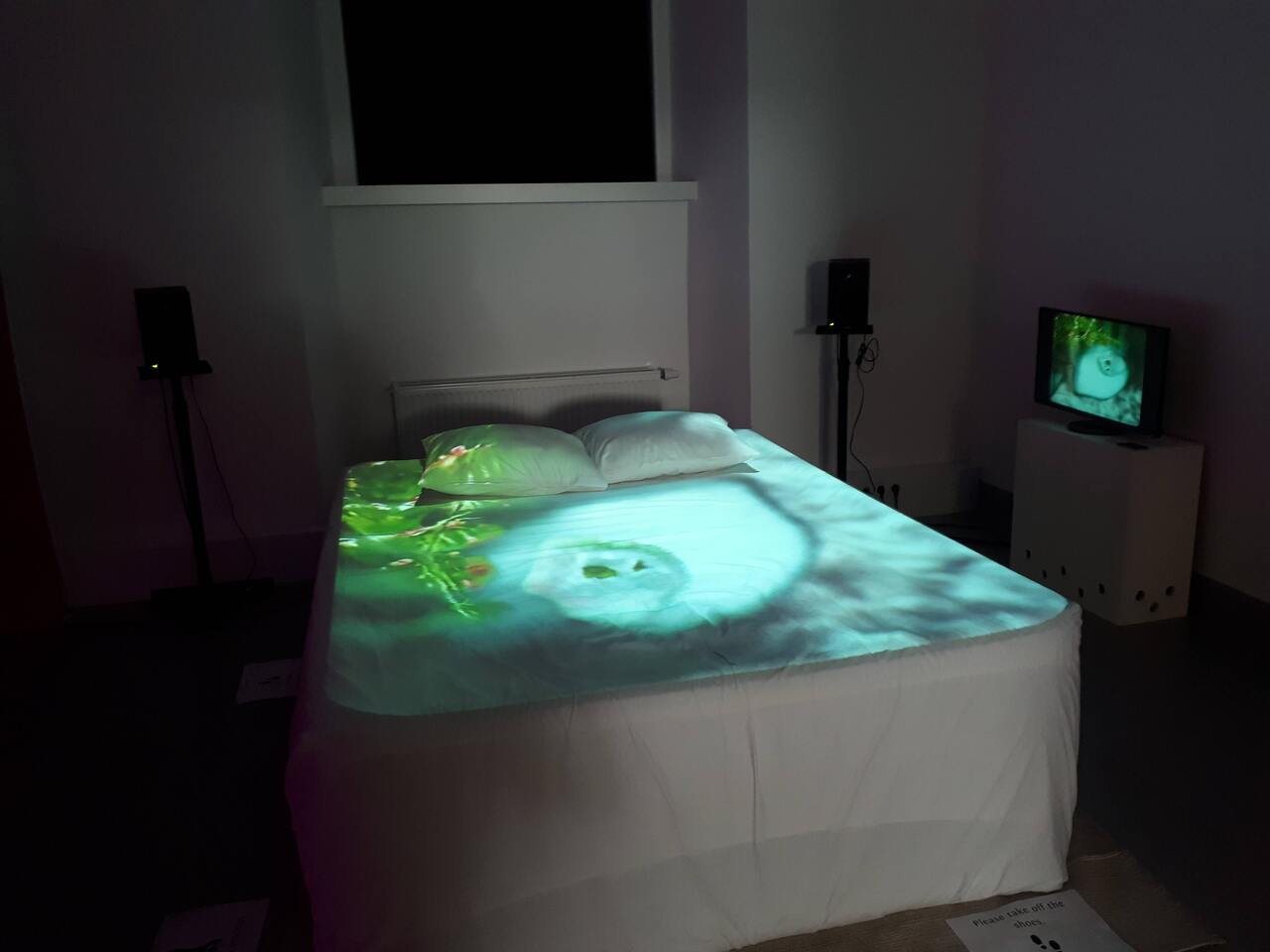
Johnny Bliss
Private Garden by Qian Xu
Infinite Nows
Just across the street, one finds Infinite Nows, a showcase of student projects from the Interaction Design department of the Zürich University of the Arts. I didn’t find a unifying theme here, but there are some interesting projects showcased, among them Dialoguing with Ecologies, which essentially amounts to a group of students attempting to use technology to communicate over time with trees.
Meanwhile, a couple of the projects played with VR headsets, with Taste Lab asking the question: Can you fool your own tastebuds with visual representations of food that aren’t there? And: I was amused by Gian Klainguti’s Holiday Hacks, a photo exhibition of a guy going on an elaborate holiday in his own apartment, using only household items and a VR headset.
New perceptions vs. technobabble wordpasta
All of this, I should say, seems to fall under the umbrella of LOOPS OF WISDOM, a series of installations that, according to the official Ars Electronica Festival catalogue, question „how knowledge is generated, and what this means for wisdom.“
At their worst, the installations here take sometimes quite cheesy sentiments and attempt to make them seem more sophisticated using wordpasta and technobabble. At their best, however, the exhibitions show us new ways of doing things, whether with Joann Lee’s Sound of Kandinsky which gives shape and colour to a musical composition, or FLUT, a project of the Freiluft-Kunstuniversität Linz’s Department of Architecture, which plays with our expectations of what architecture and design ideas are possible in public spaces like urban courtyards.
Art games
Most appealing for me, however, are not the physical but in fact the virtual spaces that one can explore. Specifically two video games stand out: firstly, DREAM WAVE GROUP, from the Austrian student game designer Vojka Laurenz, is a chill-out RPG very much in the spirit of the early Final Fantasy and other games from the late 90s. It’s utterly non-violent; your character simply walks around entering the dreams of the troubled NPCs that populate the game’s surrealist landscape, attempting to help them free themselves of their traumas. It’s very trippy and a little bit psychedelic, and for someone like me, who grew up playing games that looked a bit like this on consoles like the Super Nintendo (yes, I’m old), it also is a bit nostalgic, in a good way.
Ars Electronica Festival 2021 - A New Digital Deal
Festival für Kunst, Technologie und Gesellschaft. Von 8. bis 12. September in Linz und online.
The second game that caught my attention was fellow Austrian Sara Koniarek’s single-player cryptographic puzzler Tele_Code, which leads the player through a sort of maze of text to ‚unlock‘ pages of text related to queerness and other ‚taboo‘ topics. The game is interesting, both on its own as an actual game, and as a statement about the ways various marginalized communities have been forced to use coded language and encrypted text to safely be able to communicate.
All things considered, I found exploring these spaces to be a very worthwhile and engaging way to spend an afternoon!
One more FM4 Spielekammerl left at this year’s Ars
Talking about games: As you have probably heard by now, we have our videogame streaming setup here in Linz with us and did daily Spielekammerl shows from Thursday on. There is one show left, of course, with Robert and Chris from the FM4 Game department playing brand new titles, specifically „Life is Strange: True Colors“ and „Kraken Academy!!“.
Our Sunday webstream will be live from 1 to 5 pm. Why not join us there?
Publiziert am 11.09.2021







